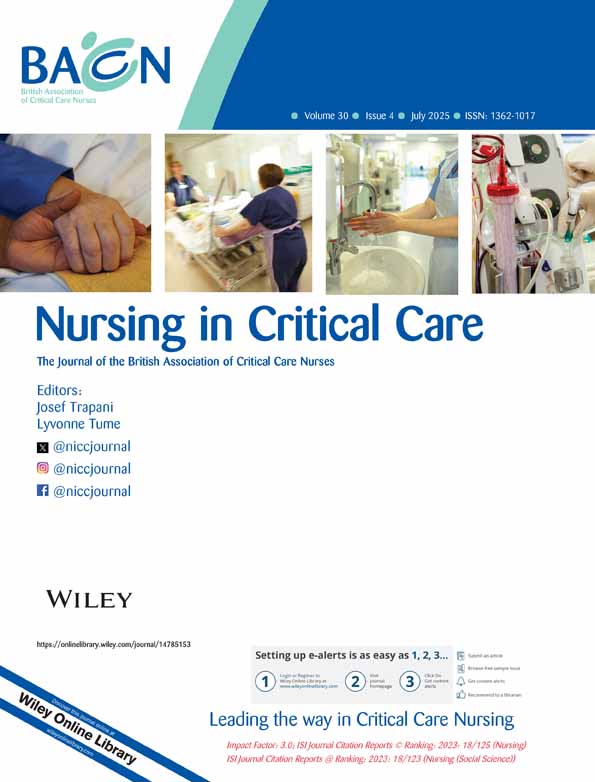Impact of an Educational Intervention on Knowledge and Attitudes Regarding Prevention of Central Line Infection Among ICU Nurses
Funding: This work was supported by Princess Nourah bint Abdulrahman University Researchers Supporting Project number (PNURSP2025R444), Princess Nourah bint Abdulrahman University, Riyadh, Saudi Arabia.
ABSTRACT
Background
Central line-associated bloodstream infections (CLABSI) represent a significant threat to patient safety, particularly in Intensive Care Units (ICUs). Despite evidence-based guidelines for CLABSI prevention, adherence remains suboptimal, particularly among ICU nurses in Jordan.
Aim
To assess the impact of an educational intervention on ICU nurses' knowledge and attitudes regarding the prevention of CLABSI.
Study Design
One-group pre-test–post-test quasi-experimental design was employed. Fifty-two ICU nurses from two Jordanian hospitals participated. Data were collected using a self-reported questionnaire assessing knowledge and attitudes towards CLABSI prevention before and after the intervention. Statistical analyses were descriptive statistics and paired t-tests to evaluate the intervention's effectiveness on knowledge and attitudes.
Results
The results indicate a significant improvement in knowledge scores following the educational intervention. The mean knowledge score increased from 37.34 ± 16.95 before the intervention to 79.49 ± 21.73 after the intervention, with a mean difference of 42.15 (95% CI: 35.29 to 49.01), p < 0.001. In contrast, there was no significant change in attitude scores. The pre-intervention mean attitude score was 16.44 ± 4.16, while the post-intervention score was 16.38 ± 3.46, with a mean difference of −0.06 (95% CI: −1.06 to 0.94), p = 0.938.
Conclusion
The educational intervention effectively improved ICU nurses' knowledge regarding CLABSI prevention but did not significantly change their attitudes. Tailoring interventions to demographic characteristics may further enhance their effectiveness and contribute to better patient outcomes and healthcare quality.
Relevance to Clinical Practice
ICU nurses require ongoing, comprehensive training programmes that encompass both knowledge enhancement and attitude development.
Conflicts of Interest
The authors declare no conflicts of interest.
Open Research
Data Availability Statement
The data that support the findings of this study are available from the corresponding author upon reasonable request.




